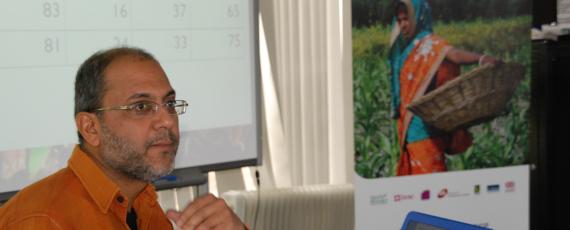Does women’s work in agriculture help or hinder nutrition in Pakistan?

This question has assumed great significance due to the steady feminisation, over the last decade, of the agricultural labour force, and the absence of nutritional improvement in the same period.
Haris Gazdar gave a talk on this subject at the Institute of Development Studies in Brighton on the 29th of April as part of the Transform Nutrition Seminar Series. His talk was based the LANSA Working Paper he co-authored with Mysbah Balagamwala and Hussain Bux Mallah, Women’s Agricultural Work and Nutrition in Pakistan: Findings from Qualitative Research.
The paper explores the trade-offs between work and care on the nutrition outcomes for children and builds on the agriculture-nutrition pathways framework to propose an approach to individual or household-level decision-making in which the provision of care (for children and women) plays an important part in determining nutrition outcomes. If nutrition is one of the factors in work, care and consumption choices, how might the terms of any trade-off be made more favourable to nutrition?
Listen to Haris Gazdar's talk below and view his presentation here.








Add new comment